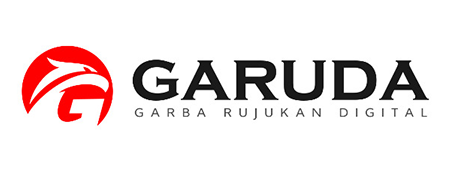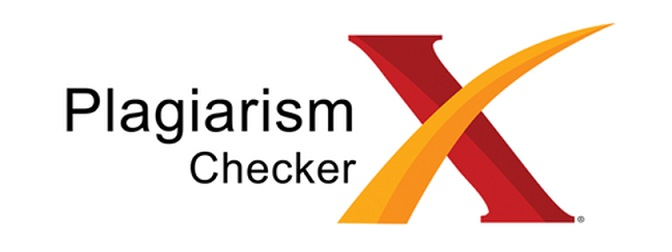Pengaruh Konservatisme Akuntansi, Umur Perusahaan Dan Kepemilikan Institusional Terhadap Tax Avoidance
DOI:
https://doi.org/10.55681/economina.v3i8.1387Keywords:
Accounting Conservatism, Tax Avoidance, Consumer SectorAbstract
This study aims to analyze and test conservatisme accounting, company age and ownership institusional on tax avoidance. The type of research used in this study is a type of quantitative research with a causal associative approach, and the source used is secondary data in the form of annual reports on consumer non-cyclicals sector for six periods. The population in this study were companies in the consumer non-cyclicals sector listed on the Indonesia Stock Exchange during 2017-2022 and there were 87 companies. The research sample was selected based on purposive sampling technique by obtaining 30 companies for 6 periods or 180 observation data. To test the hypothesis using the program EViews series 9. Data were analyzed using the method of panel data regression analysis. The results of this study partially show that conservatisme accounting have an effect on tax avoidance, meanwhile company age and ownership institusional had no effect on tax avoidance. Simultaneously show that conservatisme accounting, company age and ownership institusional have an effect on tax avoidance.
Downloads
References
Anggita, D., & Supriadi. (2023). Pengaruh Umur Perusahaan, Ukuran Perusahaan, Profitabilitas, Pertumbuhan Penjualan, Leverage Terhadap Tax Avoidance Pada Perusahaan Transportasi Yang Terdaftar Di Bursa Efek Indonesia (BEI). Soetomo Accounting Review, 1(2), 173-189.
Anggraini, A., & Dewi, E. R. (2022). Profitabilitas Memoderasi Pengaruh Sales Growth Dan Institusional Ownership Terhadap Tax Avoidance. Jurnal Semarak, 5(2), 27-43.
Ariyani, C. F., & Arif, A. (2023). Pengaruh Multinasionalitas, Capital Intensity, Sales Growth, Dan Konservatisme Akuntansi Terhadap Tax Avoidance. Jurnal Ekonomi Trisakti, 3(2), 2863-2872.
Aulia, N., & Purwasih, D. (2023). Pengaruh Kepemilikan Institusional Dan Capital Intensity Terhadap Tax Avoidance Dengan Ukuran Perusahaan Sebagai Variabel Moderasi (Studi Empiris Pada Perusahaan Manufaktur Sektor Property dan Real Estate Yang Terdaftar di BEI Tahun 2016-2020). JURNAL REVENUE, 3(2), 383-394.
Basir, A. (2023). The Effect Of Conservatism, Leverage, Profitability, Company Size And Institutional Ownership On Tax Avoidance. COSTING:Journal of Economic, Business and Accounting, 7(1), 2382-2400.
Ghozali, I. (2021). Ekonometrika Teori, Konsep dan Aplikasi dengan IBM SPSS 24. Cetakan Ketiga. Semarang: Badan Penerbit Universitas Diponegoro.
Ismanto, J. (2023). Pengaruh Konservatisme Akuntansi, Pertumbuhan Penjualan Dan Tata Kelola Perusahaan Terhadap Tax Avoidance. JURNAL LENTERA AKUNTANSI, 8(1), 35-51.
Mahdiana, A. (2022). Pengaruh Profitabilitas, Leverage, Ukuran Perusahaan Dan Sales Growth Terhadap Tax Avoidance. Jurnal Ilmiah Akuntansi Dan Keuangan, 5(1), 34–44.
Maulana, et. al. (2021). Analisis Pengaruh Kompensasi Eksekutif, Profitabilitas Perusahaan Dan Leverage Terhadap Tax Avoidance. KORELASI, 2(1), 1151-1170.
Nadhifah, M. & Arif, A. (2020). Transfer Pricing, Thin Capitalization, Financial Distress, Earning Management, Dan Capital Intensity Terhadap Tax Avoidance Dimoderasi Oleh Sales Growth. Jurnal Magister Akuntansi Trisakti, 7(2), 145-170.
Noviyanti, S., & Asalam, A. G. (2023). Kepemilikan Institusional, Leverage, dan Komite Audit terhadap Tax Avoidance. Jurnal E-Bis: Ekonomi-Bisnis, 7(2), 717-726.
Pangestu, S. H., & Pratomo, D. (2020). Pengaruh Konservatisme Akuntansi Dan Capital Intensity Terhadap Tax Avoidance Dengan Profitabilitas, Size Dan Leverage Sebagai Variabel Kontrol. JAE: JURNAL AKUNTANSI DAN EKONOMI, 5(3), 26-34.
Pohan, C. A. (2018). Pedoman Lengkap Pajak Internasional. Jakarta: PT Gramedia Pustaka Utama.
Putri, Y. F. E., & Setiawan, I. (2023). Pengaruh Capital Intensity, Strategi Bisnis Dan Umur Perusahaan Terhadap Tax Avoidance. Jurnal Revenue, 3(2), 421-428.
Puspitasari, et. al. (2022). Pengaruh Profitabilitas, Leverage, Ukuran Perusahaan, Sales Growth Dan Konservatisme Akuntansi Terhadap Tax Avoidance. Borobudur Accounting Review, 2(1), 21-35.
Rahma, J., & Fitriyana, F. (2023). Pengaruh Konservatisme Akuntansi, Financial Distress dan Sales Growth terhadap Tax Avoidance. JURNAL ILMIAH FEASIBLE: Bisnis, Kewirausahaan & Koperasi, 5(1), 28-36.
Ramadhani, F. N., & Ningsih, S. S. (2022). Pengaruh Return On Asset, Debt To Equity Ratio dan Deferred Tax Expense Terhadap Tax Avoidance. Jurnal Manajemen Bisnis, 11(1), 39-45.
Sterling, F., & Christina, S. (2021). Pengaruh Rasio Keuangan, Ukuran Perusahaan, Dan Umur Perusahaan Terhadap Tax Avoidance. E-JURNAL AKUNTANSI TSM, 1(3), 207-22.
Sugiyono. (2022). Metode Penelitian Kuantitatif, Kualitatif, dan R&D. Bandung: Alfabeta.
Suryadi, D., & Afridayani. (2021). PENGARUH CORPORATE RISK, CAPITAL INTENSITY, DAN KEPEMILIKAN INSTITUSIONAL TERHADAP TAX AVOIDANCE (Studi Empiris Perusahaan Pertambangan yang Terdaftar di Bursa Efek Indonesia Tahun 2015-2019). SAKUNTALA, 1(1), 162-174.
Trifena, R. D., & Rustiyaningsih, S. (2023). Pengaruh Leverage, Umur Perusahaan, Profitabilitas, Dan Konservatisme Akuntansi Terhadap Tax Avoidance (Studi Empiris pada Perusahaan Sektor Industri Barang Konsumsi yang Terdaftar di BEI Tahun 2017-2019). JRMA (Jurnal Riset Manajemen dan Akuntansi), 11(2), 145 – 158.
Triyanti, et. al. (2020). Pengaruh Profitabilitas, Size, Leverage, Komite Audit, Komisaris Independen Dan Umur Perusahaan Terhadap Tax Avoidance. Jurnal Ilmiah Universitas Batanghari Jambi, 20(1), 113-120.
Vemberain, J., & Triyani, Y. (2021). Analisis Pengaruh Profitabilitas, Ukuran
Downloads
Published
How to Cite
Issue
Section
License
Copyright (c) 2025 JURNAL ECONOMINA

This work is licensed under a Creative Commons Attribution-ShareAlike 4.0 International License.












